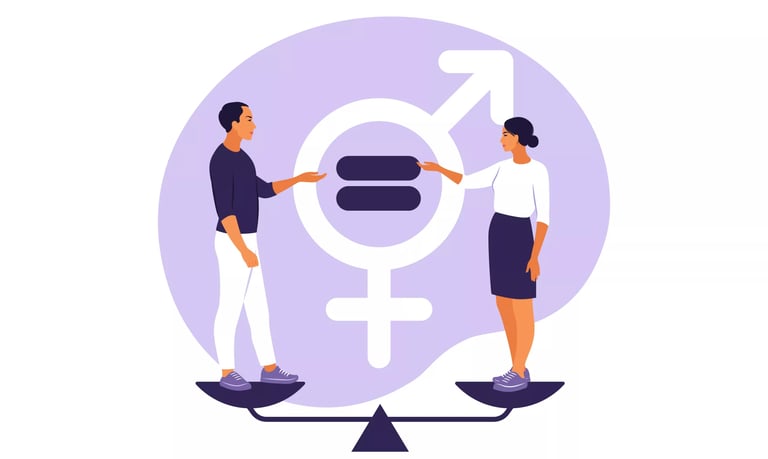Gender Equality
COMMUNITY


Gender equality aims to provide equal opportunities and rights to all individuals, regardless of gender. It involves closing gaps in education, employment, and leadership, while also fighting discrimination and harmful stereotypes.
Women-led growth is essential to India's goal of becoming a developed country. During the Viksit Bihar conference, Union Minister Jitendra Singh emphasized that 76,000 startups are now run by women, with many of them coming from Tier-2 and Tier-3 towns. Women's participation in education, STEM, entrepreneurship, and defense (through Sainik Schools and NDA admissions) is being expedited by the government. To aid in this transition, Patna Women's College is planned to be developed under the CURIE program.
On the occasion of the queen's 300th birthday, Madhya Pradesh initiated the Devi Ahilyabai Nari Shakti Mission on a national level, emphasizing economic independence, health, safety, education, and the prevention of child marriage. Women entrepreneurs may be eligible for up to 50% capital grants under MSME Policy 2025, which would increase economic inclusion.
A 33% reservation for women in state and parliamentary assemblies is guaranteed by India's Women's Reservation Act (2023). But as of 2025, women only make up roughly 13–14% of MPs, highlighting the disconnect between reform and true inclusivity.
The Lado Panchayat movement in Haryana gives rural women the authority to tackle problems like gender-based violence and child marriage at the local level. It encourages women to take on leadership roles and participate in local governance as an alternative to male-dominated khap systems.